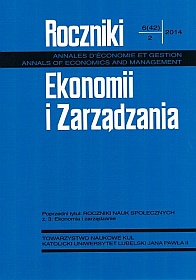Electronic Signature in Business
Abstract
In the era of globalization, the information is the most desirable source of knowledge and priceless commodity. With the development of ever faster and more efficient ways to communicate messages over long distances difficult for us to imagine working without the use of computers and increasingly better software. Conclusion of contracts by electronic means is carried out in various ways – through the exchange of mail, filling out forms on websites, use of databases, community programs, and finally – after the electronic signature and e-documents. All this happens not only because of nearly universal access to the Internet, but especially through continuous improvement of information encryption methods, the increase in computing power and alignment with the requirements of e-markets.
References
Janowski J., Elektroniczny obrót prawny, Wolters Kluwer Polska, Warszawa 2008.
Kościółek A., Elektroniczne czynności procesowe w sądowym postępowaniu cywilnym, Wolters Kluwer Polska, Warszawa 2012.
Lange-Sadzińska K., Ziemecka M., Przewodnik po EDI, Uniwersytet Łódzki, Łódź 2000.
Podpis elektroniczny – sposób działania, zastosowanie i korzyści, Ministrstwo Gospodarki, Warszawa 2005.
Przyłuska J., Świadczenie usług finansowych drogą elektroniczną, w: Innowacje na polskim rynku finansowym, red. K. Ciejpa-Znamirowski, KUL, Lublin 2004.
Społeczeństwo informacyjne w liczbach, Ministerstwo Administracji i Cyfryzacji, Warszawa 2012.
Copyright (c) 2014 Roczniki Ekonomii i Zarządzania

This work is licensed under a Creative Commons Attribution-NonCommercial-NoDerivatives 4.0 International License.


